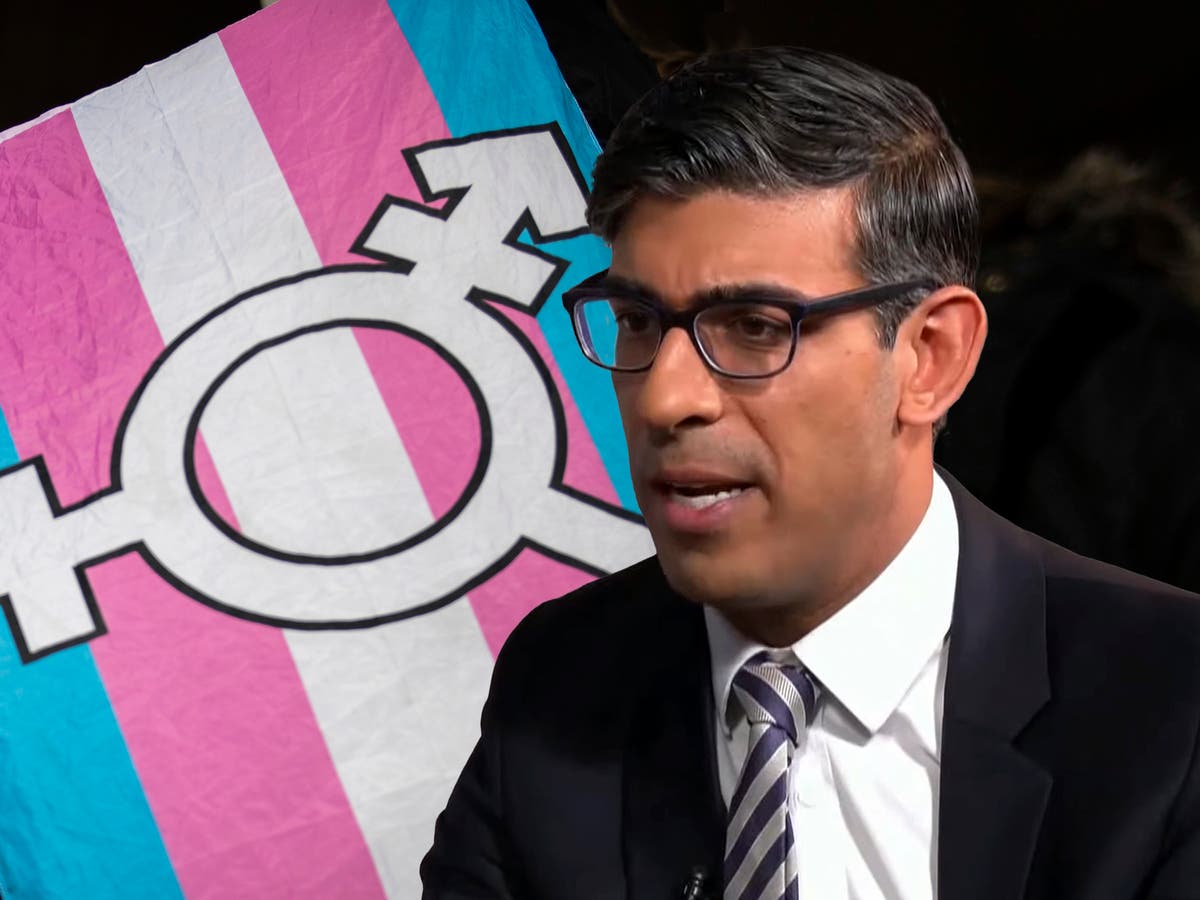
Schools and colleges in England have been told there is “no general duty” to allow children to change their gender identity.
Teachers in England will not be “compelled” to use a preferred pronouns, the government’s long-awaited transgender guidance has said.
But Rishi Sunak is facing a backlash from Tory right-wingers angry that it does not ban social transitioning – the process when pupils change their names, pronouns and clothing – in schools.
Former Tory PM Liz Truss said it “doesn’t go far enough” and will let trans rights activists “exploit loopholes in the guidance … to pursue their agenda”.
Jonathan Gullis MP, former schools minister, said: “This fudge from the government is wholly unacceptable, leaving teachers vulnerable to attacks from those who try to impose their extremist gender ideology onto young minds.”
The guidance says schools will be told that there is “no general duty” to allow children to change their gender identity. And schools are under no obligation to provide gender-neutral facilities.
The advice also says on the “rare occasions” where a school or college agrees to a change of pronouns, no teacher or pupil should be compelled to use them. It says teachers should still be able to refer to children collectively as “girls” or “boys”.
Kemi Badenoch has said single sex areas needed protecting from ‘predators’
The advice also says that teachers should consider if a pupil’s request to socially transition has been “influenced by social media” or their “peers”.
Schools have also been told to tell parents if a pupil wants to change their gender identity, with some exceptions. Parents “should not be excluded” from decisions taken by a school relating to requests for a child to “socially transition”.
The guidance also adds that schools should provide separate toilets for boys and girls aged eight and above – and changing rooms and showers for boys and girls who are aged 11 years or over at the start of the school year.
The guidance says all children should use the toilets, showers and changing facilities “designated for their biological sex unless it will cause distress for them to do so”.
It adds: “In these instances, schools and colleges should seek to find alternative arrangements, while continuing to ensure spaces are single-sex.”
Kemi Badenoch, the equalities minister, said the guidance would give teachers and school heads “greater confidence” when dealing with an issue “hijacked by activists misrepresenting the law”.
The cabinet minister added: “It makes clear that schools do not have to accept a child’s request to socially transition, and that teachers or pupils should not be pressured into using different pronouns.”
But a school leaders unions said headteachers will continue to be placed in a difficult position – arguing that the trans guidance leaves many “questions unanswered”.
Paul Whiteman, general secretary of school leaders’ union NAHT, said: “school leaders will continue to be placed in an incredibly difficult position.”
The Association of School and College Leaders (ASCL) said it would be reviewing whether the guidance is “clear and deliverable and whether it places extra workload on education staff”.
Stonewall, the LGBTQ+ charity, condemned the plan. “The UK government’s draft trans guidance for schools does not put the best interests of children first, and as such is simply not fit for purpose,” said a spokesperson.
The trans rights advocates said there was “considerable evidence” that allowing social transition “improves the mental health of trans children and young people”.
However, Maya Forstater, executive director of the gender-critical group Sex Matters, largely welcomed the changes. “This guidance, though imperfect, sets the global standard for uprooting trans ideology from schools.”
She added: “No other country that has allowed the trans lobby to dictate lessons and school policies has moved so decisively to reverse course.”
Former PM Liz Truss says guidance does not go far enough
But some on the Tory right are uneasy. Ms Truss said it “does not go far enough” and leaves children “at risk of making irreversible changes and with single-sex spaces not sufficiently protected”.
Ms Truss has put forward her own legislation to mean that would mean social transitioning is not recognised by schools or the state in children and puberty blockers and hormone treatment for gender dysphoria would be banned for under-18s.
No 10 said the government could still change the guidance. “We will listen carefully to the views of those who work in the sector and beyond,” said Mr Sunak’s official spokesman. “We have taken the time, we believe, to strike the right balance.”
Education secretary Gillian Keegan – thought to have pushed for a less hardline stance that Ms Badenoch – claimed the guidance would remove “any confusion about the protections that must be in place for biological sex and single-sex spaces”.
She added: “Parents’ views must also be at the heart of all decisions made about their children, and nowhere is that more important than with decisions that can have significant effects on a child’ life for years to come.”
Meanwhile, a Tory minister has claimed a police force was wrong to record an allegation of transphobia made against a Conservative MP as a “non-crime hate incident”.
Redditch MP Rachel Maclean is challenging the decision made by West Mercia Police after an investigation into her retweet of a post on X, formerly Twitter, which described transgender woman Melissa Poulton as “a man who wears a wig”.




